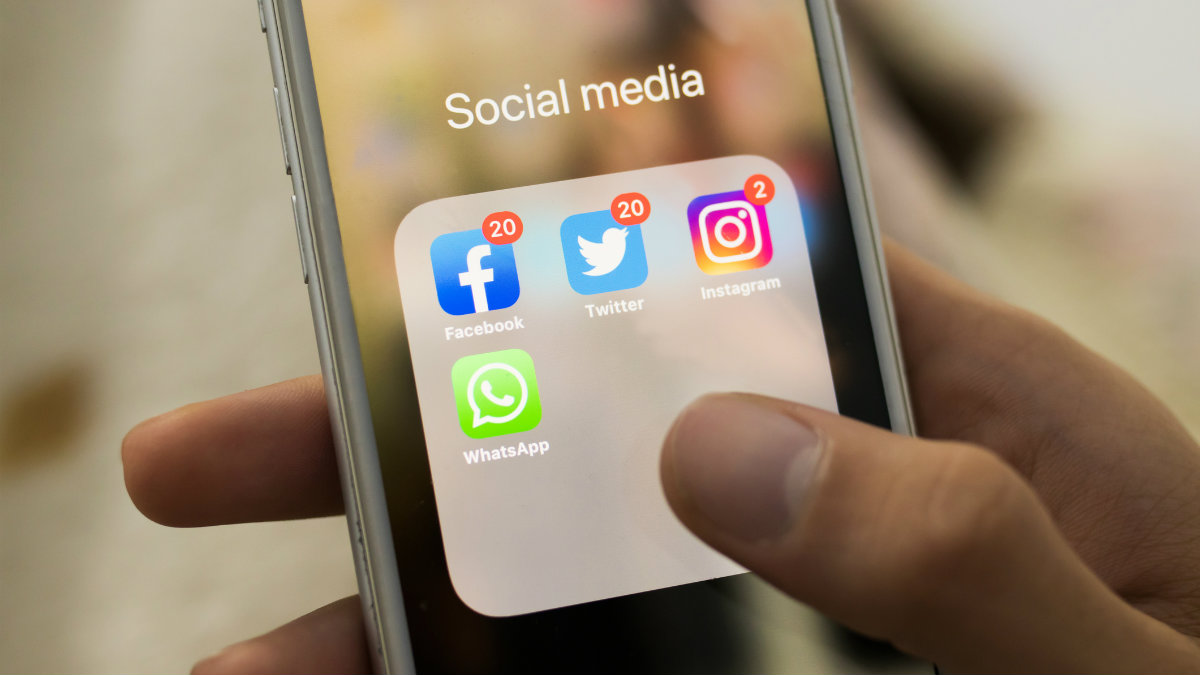Enjoy a full hour of The Kim Komando Show, compliments of the Komando Community. Try it out yourself free for 30 days and get access to Kim’s show as a podcast on your schedule at getkim.com. In this hour, a simple hacking trick is behind a months-long cyberattack targeting multiple U.S. government agencies — and it affects you, too. Plus, the FTC ordered Big Tech companies to explain how and why they collect your data. And don’t fall for these COVID-19 vaccine myths spreading like a virus on social media.
The biggest whack job post on Facebook that I've ever seen

There has been no shortage of conspiracy theories being posted on Facebook during the pandemic. It is almost as if the coronavirus is affecting some people’s ability to think clearly.
Putting a Faraday cage over your router to block “harmful” 5G frequencies is just nonsensical. And as we have explained before, not only is this ineffective at stopping the spread of 5G, but it will also make your internet speeds worse!
But out of all the crazy theories that popped up this year, the strangest one by far started making the rounds on Facebook in late November. A man claims that COVID tests contain a small holographic optical chip — and he has proof. Let’s take a deep dive into what’s going on.
Conspiracies thrive on misinformation
Posting his “findings” on social media, the man details how he ran off with a testing swab and “ran a PIXE scan on it” at home. He claims that the holographic optical chip contains Technetium and possesses mind control and DNA direct manipulation properties.
Conspiracy theories like this one have been around for generations, partly due to their degree of perceived probability.
By following our guide on how to spot fake or troll social media accounts, it’s easy to see that the poster falls into one of those categories. The account only focuses on one topic, has an impersonal profile picture and frequently shares posts from other conspiracy theorists.
Doing a quick online search, we found that PIXE stands for particle-induced X-ray emission and is widely used to determine a sample’s elemental makeup. Technetium is listed on the periodic table as atomic number 43 and is produced through spontaneous nuclear fission.
Not as sinister as the theorist wants you to believe, but Technetium is used in the medical field. It is highly effective as a radioactive tracer, which medical imaging equipment can track in the body. In principle, it is like swallowing the element Barium so that doctors can examine your pharynx or esophagus with X-ray imaging.
But that is the real danger about fake news — it sounds somewhat plausible, especially if one has a predilection for conspiracy theories.
How to spot a fake news account
There are effective ways of rooting out fake news. The most important thing you can do is not to share a post that you can’t verify. It’s always better to err on the side of caution than to contribute to the ever-growing online garbage pile.
Try this $1 face mask hack to keep your glasses from fogging up

People with glasses have a major sticking point when it comes to wearing masks: It fogs up their lenses and makes everything difficult to see.
Mask wearing is critical to slowing the spread of COVID-19, and the last thing anyone needs is a reason to find themselves kept out of stores and essential businesses. Tap or click here to see how to make your own mask at home.
Bonus episode: An hour of The Kim Komando Show
6 privacy and security mistakes you’re making on social media

Pop quiz: What percentage of American adults use social media? Think about it and I’ll tell you the answer below.
From Facebook to Twitter to Instagram and all the sites in between, we’re voluntarily giving out more information online than ever. Tap or click to get a closer look at exactly what Google knows about you and the steps to erase it.
Facebook’s big — this big
With two lawsuits already filed and a third on the way, the Facebook, Instagram and WhatsApp business can virtually silence anyone on social media it chooses. Here’s why these lawsuits are historic.
Crazy Facebook conspiracy theory, Apple's $550 headphones, vaccine scams
Allie, Ben and Mike dive into the week in tech news, including a crazy conspiracy theory making the rounds on social media, Apple’s shockingly expensive new headphones and a game-changing app from Google. Can Ben fool Allie and Mike in Brand New or Not True? And the inspiring story of an Amazon driver who saved a man’s life.
Secret sister scam spreading
A common scam making the rounds is the “Secret Sister” gift exchange. It’s taking over social media newsfeeds again this year. Here’s how to watch out for it!
Prince Harry & Meghan Markle’s latest fail
Harry and Meghan, the Duke and Duchess of Sussex, have once again barged in to lecture us on the dangers of social media. How original!
What if social media and Big Tech paid YOU to use your personal data?
You may think advertising runs the internet, but the big data behind it is where the real profits come from. We’re being followed all around the internet and tracked where we go through our phones, watches, tablets, cars, smart speakers and a multitude of other devices. If Big Tech can cash in on our data, why can’t we? Kim talks with author and computer scientist Jaron Lanier — one of the founding fathers of virtual reality — about what it could look like if we truly had control over our info online.
Most voters want social media shut down during election week
What does America really think of social media and its effect on the election? I bet you won’t be surprised to learn the vast majority of us want a social media break the closer we get to the election.
Top private investigator shares the dirty secrets about background check websites
You can Google someone or check social media to find out more about them. Eventually, you’ll land on the background check sites. Enter someone’s name and they show you tiny details. Pay a fee and you can get even more info. But what do the pros use to get the intel they need? Kim talks to Rich Robertson, a Certified Legal Investigator who has taken the lead on hundreds of complex criminal and civil cases. Finding any dirt on someone should be an easy task for him. He’s got the secrets on the pros use.
Big social media boycott bust
Hollywood celebrities generally aren’t known for their breadth of intellect or depths of wisdom. Which is why yesterday’s star-studded social media stunt to fight back against online hatred, was both embarrassing and worthless.
Full hour of The Kim Komando Show - Online fraud surges since the pandemic began
This week’s exclusive episode of Tech You Should Know is a full hour of The Kim Komando national radio show. Listen to every episode on your schedule on the Komando Community. T
Online fraud has been surging since the pandemic began. But have you ever wondered who’s behind it, or where they are? Plus, more bad news for TikTok as it’s been discovered that its Android app has been collecting data it shouldn’t be. And this major city is checking social media feeds to find out if you’re violating quarantine. And that, plus your calls and questions.
Before you shop online this weekend ...
Behind almost every online retail scam, you’ll find social media. The latest warning from the FBI is one you should take very seriously, especially if you’re always looking for a great deal.
New research: Adults who rely on social media for news are less informed
The most effective way to get accurate news? A combination of local and national radio, television and newspapers, along with trusted sites online and experienced commentators and opinion writers. And then there’s social media.
Small biz 101: How to market your company on social media
It doesn’t matter if you bring in millions a year or put all your effort into just keeping your small business running — you need to market your business online. With so many digital channels, how do you get the most bang for your digital marketing buck? Kim talks to Jeremy Wood of Hootsuite about using social media to connect with your audience. Mike Huber of Vertical Measures tells us about using social media to build an “owned” audience.
Study: People who like to embarrass, anger others more addicted to social media
We’ve known for decades that people are often more aggressive online than in person. But now, research from Michigan State and California State Universities proves what we already suspected: The heaviest users of social media really are trolls.
Social media success: The tricks you need to know
In the never-ending noise that is social media, how do you stand out? That’s the question business owners and entrepreneurs are asking. Kim talks to top technology influencer Evan Kirstel about ways to shine in a crowded social world. And learn the biggest mistakes to avoid if you’re trying to build your brand.
Practice social media distancing for a real Independence Day 2020
Social media’s promise to bring us closer has failed miserably. This holiday weekend, I encourage you to step away from all the timelines, comments and messages. You’ll thank me later.
How lies survive on social media
Radio shows like mine, newspapers, magazines and virtually every other form of media are held accountable for publishing something libelous, false or dangerous. That’s not the case for social media platforms, and I say it’s time for that to end.